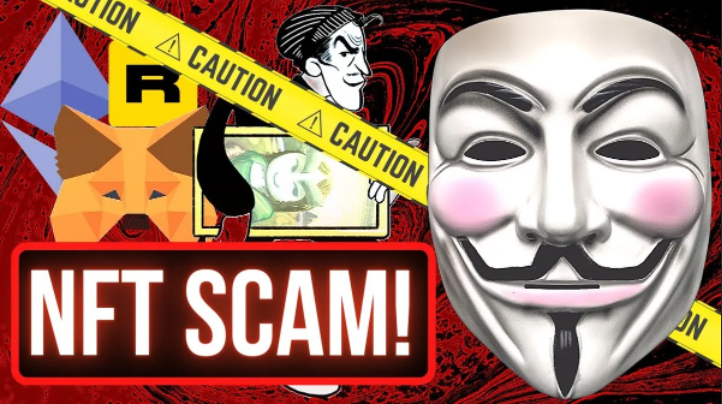Non-fungible tokens (NFTs) have taken the digital world by storm, offering a new way to buy, sell, and trade unique digital assets. From digital art to virtual real estate, NFTs have opened up a world of possibilities for creators and collectors alike. However, along with their popularity, NFTs have also attracted fraudsters looking to take advantage of unsuspecting buyers. In this article, we’ll explore the different types of NFTs and how they are used in fraud scams.
What Are NFTs?
NFTs are unique digital tokens that represent ownership of a specific asset or piece of content. Unlike cryptocurrencies such as Bitcoin or Ethereum, which are fungible and can be exchanged on a one-to-one basis, NFTs are non-fungible, meaning each token is unique and cannot be exchanged for another token of equal value.
Types of NFTs
1. Digital Art: One of the most popular uses of NFTs is to buy and sell digital artworks. Artists can create unique pieces of art and mint them as NFTs, allowing collectors to purchase and own the original digital file.
2. Collectibles: NFTs are also used to create digital collectibles, such as trading cards or virtual toys. These collectibles can be bought, sold, and traded like physical collectibles, but they exist only in digital form.
3. Virtual Real Estate: In virtual worlds like Decentraland or The Sandbox, NFTs are used to represent ownership of virtual land and properties. Users can buy, sell, and develop virtual real estate using NFTs.
4. Music and Videos: NFTs can also be used to buy and sell rights to music, videos, and other forms of digital media. Artists can tokenize their work, allowing fans to purchase ownership or access rights.
5. NFT Drops: NFT drops are events where creators release a limited number of NFTs for sale at a specific time. These drops can generate a lot of hype and demand, leading to quick sell-outs and increased value for the NFTs.
How NFTs Are Used in Fraud Scams
While NFTs offer exciting opportunities, they have also become a target for fraudsters looking to exploit unsuspecting buyers. Here are some common types of NFT fraud scams:
1. Fake NFTs: Scammers create counterfeit digital artworks or collectibles and mint them as NFTs. They then list these fake NFTs for sale, claiming them to be rare or valuable, deceiving buyers into purchasing worthless tokens.
2. Phishing Scams: Scammers send out emails or messages pretending to be from legitimate NFT platforms or artists. They ask users to click on links and provide their private keys or wallet information, which the scammers then use to steal funds.
3. Pump and Dump Schemes: Scammers artificially inflate the price of an NFT by spreading false information or creating hype around it. Once the price has risen significantly, they sell their holdings, causing the price to crash and leaving other buyers with worthless tokens.
4. Plagiarism: Some scammers copy existing digital artworks or content, mint them as NFTs, and sell them as original creations. This not only defrauds buyers but also harms the original artists by devaluing their work.
5. Exit Scams: In this type of scam, creators of NFT projects disappear after selling their tokens, leaving buyers with no recourse to recover their funds or claim the promised benefits of the NFTs.
How to Avoid NFT Fraud Scams
To protect yourself from NFT fraud scams, follow these tips:
– Do Your Research: Before buying an NFT, research the artist, project, and platform to ensure they are legitimate.
– Verify Authenticity: Look for proof of authenticity, such as signatures or certificates of authenticity, for digital art NFTs.
– Use Secure Wallets: Store your NFTs in a secure wallet and never share your private keys or wallet information with anyone.
– Be Skeptical: Be wary of offers that seem too good to be true or high-pressure sales tactics.
In conclusion, while NFTs offer exciting new opportunities in the digital world, it’s essential to remain vigilant and aware of the potential for fraud scams. By following these tips and staying informed, you can safely participate in the world of NFTs and enjoy the benefits they offer.


